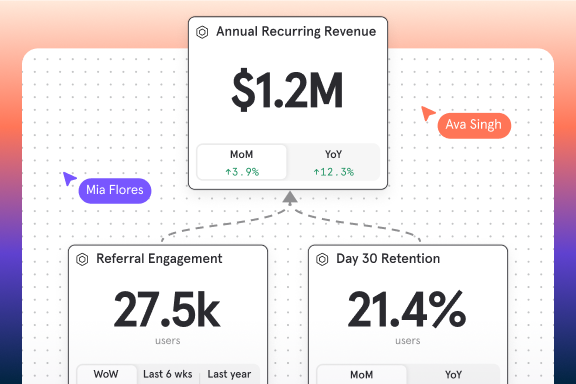Bolt, the first European super-app, uses Mixpanel to fuel its growth strategy
Company
Bolt is the first European super-app. The company is on a mission to build cities for people, not cars. Bolt does this by offering a better alternative to every purpose a private car serves – including ride-hailing, shared cars and scooters, and food and grocery delivery. The Bolt team believes that its products and services can offer a reliable solution to everyday mobility in an affordable, safe, and sustainable way. Founded by Markus Villig in 2013, Bolt now has more than 100+ million customers in over 45 countries in Europe and Africa.
Challenge
Bolt has expanded to offer more than six primary services, including ride hailing and food delivery, across more than 500 cities across Europe and Africa. In securing growth and building up customer retention, Bolt must build the best product to deliver a seamless user experience. Bolt needed powerful and fast product analytics to help the company enhance its data-informed culture, better understand how its products performed as it scaled, and rapidly improve its solutions.
Solution
Bolt’s Global Product Strategist, Aastha Yadav, realized that there were gaps while using traditional BI when it came to understanding holistic user behavior on Bolt Products and their relevance on the business metrics. For example, when a user cancels a ride because of pricing surges, the product team had less clarity on which variables impacted user behavior the most. So Bolt leveraged Mixpanel as a powerful and intuitive tool to standardize its approach to product analytics. The tool helps both product and business teams quickly understand how different types of users engage with Bolt’s products, and why specific business outcomes occur.
Mixpanel helps us understand the way and the how impacts of our decisions. Before, we could only understand the what, or the business outcomes of our work. It has enhanced our ability to rapidly improve our products while not just being reactive but increasingly proactive.Aastha Yadav Head of Global Product Strategy at Bolt
Results
- Freed up more Android Developers capacity by 15% and helped them focus on more important strategic tasks
- Supported in reducing ride cancellations by 3%
- Mixpanel users at Bolt doubled in six months
- Supported the data-informed culture across the organization

How they did it
What were the challenges you were experiencing?
We were experiencing two high-level challenges. First, our existing BI solution was slow, with analysts needing to build specific queries and product teams waiting too long for the outputs. Second, expansion into new product areas and geographies was a key part of our wider growth plan, so we needed a simple and efficient way to understand how our products were performing as we scaled the company.
With our previous solution, we could understand the outcomes of our product decisions. But we had to go deeper. As a product team, we knew we needed a tool that was purpose-built for product teams. This would allow us to go a layer deeper into understanding how users were engaging with our products, and the impact our decisions were having. It’s only by understanding why specific product developments are or are not performing well that you can continually improve your offering and grow. A powerful yet simple product analytics solution was the obvious answer here. Mixpanel allows anyone in the company to gain this type of insight in an instant.
Why did you choose Mixpanel?
Before Mixpanel, we mostly operated off spreadsheets or BI tools and wrote our own queries. At the time, this wasn’t too complex to manage, but as soon as we began to move into more verticals and beyond ride-hailing, we knew we needed a powerful tool that could help us problem-solve faster. At Bolt we like to be super fast and adapt quickly, it’s part of our DNA. We felt that the team at Mixpanel really understood this evolution and would be able to support us as we scaled.
It’s true, Mixpanel has grown alongside Bolt, and it’s been great to see your success. Can you explain what that success has looked like and the role that product analytics has played in supporting your product teams and overall business?
Since we’ve been working with Mixpanel, we have seen a shift in our growth strategy — beginning with an all-out growth model as we expanded, to now focusing on more sustainable growth and being more operationally efficient. Mixpanel has been there every step of the way, and remains a crucial component in how we make decisions.
For example, being able to quickly access user retention reports allows us to see the users who have done something in the app, maybe placed an order, or perhaps just used a certain function, and how likely they are to come back to us. The result of all of this is an improved capability of our teams to understand what makes sense to build–and especially what doesn’t. Without these kinds of insights, the ability to understand how our consumers and users are actually using the product in different markets and verticals and ultimately where we should be assigning our time, it’s very difficult to understand how we can become more efficient and sustainable as a business.
How do teams at Bolt use Mixpanel?
Mixpanel is the perfect tool for product teams — it’s powerful, gets results quickly, and is now firmly part of our onboarding process for product teams across many of our verticals. Mixpanel is an important part of our product roadmap decision-making process. When we’re discussing a new feature or making a change, we often look at the data in Mixpanel to make an informed decision. Once we‘ve rolled out a new feature or made a change, we follow the results on Mixpanel so we can determine if we should make modifications or stay the course. Mixpanel shapes our product roadmap and helps us change course if the original hypothesis isn’t playing out.
Because it’s powerful and simple to use, Mixpanel is also used by many job functions outside the product team. Mixpanel is used by engineers, marketing, operations and senior management, due to its ease of use and speed of insight. This means our teams can collaborate more closely with different job roles across the business, from design and marketing to operations. If different functions disagree on something, we tend to look at the data coming from Mixpanel to help us resolve the discussion. As a result, we are able to democratize our product data across the business, and we are supporting our data-informed culture.
Mixpanel is a tool that we can put into everyone’s hands at Bolt. It’s powerful, yet very easy to use. There’s no need to wait for an analyst or data scientist to design and run a query; everyone can get fast answers and agree on a way forward.Nikita Strezhnev Data Analytics Manager at Bolt
How do different Bolt product teams use Mixpanel to be more data informed?
Ride Hailing
Mixpanel is a vital tool for testing hypotheses. We’re often unsure whether we should go down a particular route and don’t always have the confidence required to make a decision, which is where data comes in.
For example, on the consumer side of business our teams used Mixpanel to determine if removing surge pricing for ride hailing would result in higher conversion rates. This was difficult to see at a high level, but Mixpanel provided the granularity and certainty to move beyond the “should we do it, or should we not” question that often holds up so much product development.
A second example was making improvements to the “best offer” part of the ride hailing app. There were question marks about whether we should show offers by price or category name, where the offers should be placed on the screen, and so on. We used Mixpanel to understand how users were interacting as we tested these different user flows, which ultimately resulted in a 3% global decrease in order cancellations. That delivered a significant revenue uplift for the company across our largest product.
The team also managed to reduce technical debt by understanding how many riders were using the app on an old version of Android, as well as the financial value of those rides. This insight provided the confidence to build a business case to stop supporting Android 4 and to offer a simple version instead, which freed-up around 15% of the Android engineering team’s resources.
Our teams are able to make thousands of good decisions because people have access to data in an easy and efficient way.
Driver experience
For a company like Bolt with high consumer demand, being able to deliver an outstanding driver experience is crucial to ensuring we have high levels of supply in our marketplaces. Our driver experience team has used Mixpanel to understand drivers in 45 markets and to optimize development of the driver app. We’re talking about over 3 million drivers globally. For example, the team learned that many drivers often prefer languages other than the primary language of the country where they operate.
Food
Our food delivery product team has also been loading data from Mixpanel to our Amazon RedShift data warehouse so they can combine it with broader data from our BI platform and other sources, like finance. We’re using this joined data to power a predictive model that analyzes how likely user cohorts are to make an order based on the different restaurants, estimated delivery times, and other information. This model is helping us understand what’s most important, choice, price or speed of delivery, so we can focus our resources. But this goes beyond the product, it’s helping to influence broader business investment decisions.
More engineers, designers and product managers working on Food are being onboarded to use Mixpanel, through training and self-serve videos. The number of active Mixpanel users in the team has doubled in the last six months.
How are business users beyond product development using Mixpanel?
One example is our operations colleagues that have an interest in the performance of local markets. We often run user acquisition campaigns or incentives and teams check the performance of those using Mixpanel. For example, how is that cohort of new users behaving within the app, are they placing orders, retaining or churning? The same teams also use Mixpanel for very fast analysis when the external environment changes. Perhaps there is an election or a major sporting event in a specific geography and we want to see how that’s driving usage of the product.
One of our top Mixpanel users is actually the country manager in Lithuania who likes to understand the impact of various business decisions. For example, when deciding which new restaurants to add to our food product, he will first use Mixpanel to understand which cuisine is most popular and how a restaurant’s distance from the user impacts the propensity to order. Those insights guide his business development activity. When we introduced changes to delivery fees in the market, he used Mixpanel to understand the impact on conversion and retention.
Thousands of companies use Mixpanel to build better products. See what Mixpanel can do for your team. Create your free account today.

